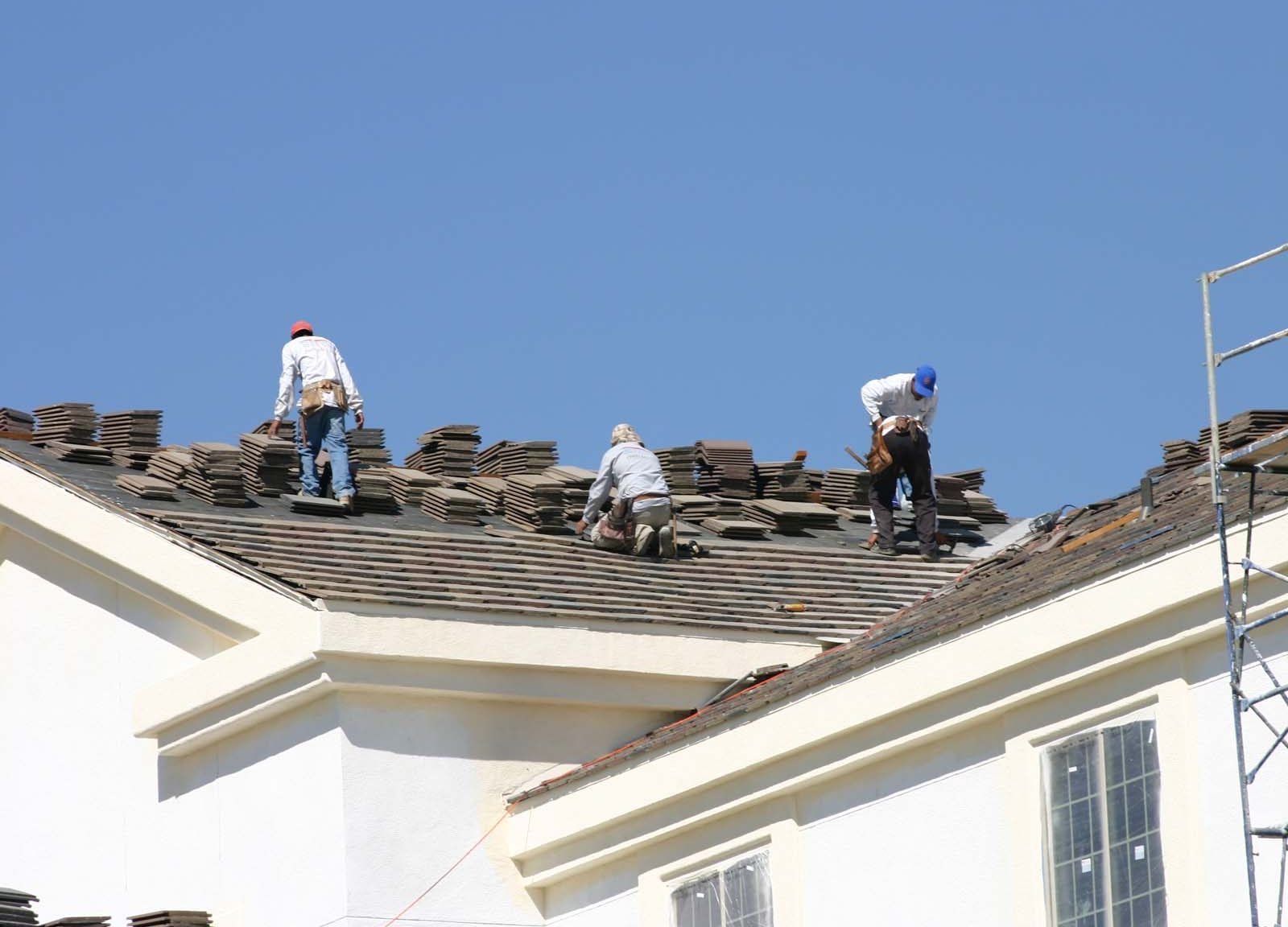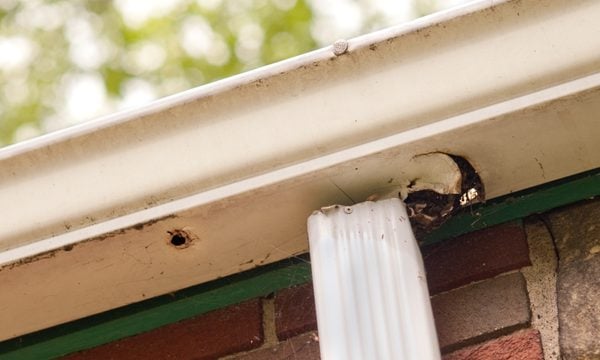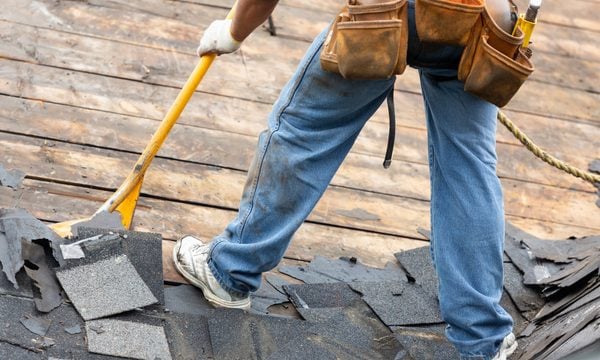Roof Replacement Cost in 2026
Roof replacement costs vary widely; what you pay depends on factors such as materials, roof size, location and contractor.

Some or all of the mortgage lenders featured on our site are advertising partners of NerdWallet, but this does not influence our evaluations, lender star ratings or the order in which lenders are listed on the page. Our opinions are our own. Here is a list of our partners.
Nerdy takeaways
- Materials: $1 to $30 per square foot
- Labor: $40 to $90 per hour
- Total: About $4 to $11 per square foot
A roof replacement costs $9,500 on average but can range from about $5,800 to $46,000, according to home services website Angi. The actual cost of installing a new roof depends on your location, roof size and dimensions and which roofing company you hire.
Materials also play a key role, with premium options such as slate, clay or copper being on the high end of the range. For most homeowners, labor expenses account for more than half of a roof’s total replacement cost, with the remainder covering materials.
Understanding how a new roof is priced can prepare you before reaching out to roofers for estimates — and may highlight line items where you have the flexibility to reduce costs.
Cost to replace a roof by size
Expect to spend from $4,000 to $11,000 per thousand square feet ($4 to $11 per square foot) using typical materials.
The size of your roof may differ from the square footage of living space inside the home. Here are estimates of the average cost to replace a roof by size:
| Roof Size (Square Feet) | Estimated Price |
|---|---|
| 1,000 | $4,000 to $11,000. |
| 1,500 | $6,000 to $16,500. |
| 2,000 | $8,000 to $22,000. |
| 2,500 | $10,000 to $27,500. |
| 3,000 | $12,000 to $33,000. |
» MORE: How much do solar panels cost?
Roof replacement costs by material
Roofing materials range from $1 to $30 per square foot. Lower-priced materials can offer significant savings during installation, but typically don’t last as long as pricier options.
| Material | Cost (per square foot) | Lifespan (years) |
|---|---|---|
| Asphalt | $1 to $1.20. | 10 to 20. |
| Clay tiles | $10 to $20 | 50 to 100. |
| Concrete | $10 to $20. | 50 to 100. |
| Metal shingles or shakes | $6 to $16. | 50 to 75. |
| Wood shingles or shakes | $6 to $15. | 30 to 50. |
| Slate | $10 to $30. | 125 to 200. |
| Synthetic | $5 to $12. | 25 to 50. |
| Source: Angi. | ||
» MORE: How to finance a home renovation
How to save on roof replacement labor costs
Labor costs are typically the bulk of a roofing project price estimate. According to Angi, professional roofers generally charge around $40 to $90 per hour per worker.
Here are a few factors that can make the difference:
- Roof angle or pitch. Tall roofs at a steep angle (called the pitch) have more square footage and require more labor, which is likely to increase expenses. A steeply sloped roof can cost an additional $1,000 to $3,000 to replace.
- Roof complexity. Simpler roofs will usually be less expensive, while more complex projects (such as when the home has chimneys or skylights) can be more costly.
- Time of year. Fall and spring are popular — and pricier — seasons to replace a roof. If your project is not urgent, you may be able to save money by scheduling work outside your region’s high season, such as during winter if the weather permits.
- Location. Roof replacements can cost more in areas with a higher cost of living or where extreme weather conditions are common. Also, if a permit is required in your area, you should anticipate spending up to $500.
- Removal and disposal of the old roof. If the original roof has to be torn up and disposed of before the new one can be put down, the roofer will add this to their labor costs.
- Any necessary repairs. If the roofer has to make structural repairs in addition to putting down the new roof, this will inflate labor costs.
What Reddit users say about roof replacement
Reddit is an online forum where users share their thoughts in “threads” on various topics. The popular site includes plenty of discussion on financial subjects like home improvement, so we sifted through Reddit forums to get a pulse check on how users feel about roof replacement costs. People post anonymously, so we cannot confirm their individual experiences or circumstances.
Reddit users emphasize the importance of getting multiple quotes from roofing companies before making a decision. Many Reddit users also recommend investing in higher-quality materials to extend the lifespan of the roof, with some even investing in pricier installation directly from the shingle manufacturer to take advantage of the manufacturer's warranty.
Frequently Asked Questions
Do I need a roof warranty?
Most new roofs come with a limited warranty at no cost, but they may not last the lifetime of the roof. You may have the option to buy an extended warranty or contractor warranty, which can cost from $500 to $5,000, depending on the roof size, materials and warranty length. Before purchasing an extended warranty, be sure to ask what the warranty does and does not cover, and weigh the benefits of this optional expense.
Advertisement



HELOC & Home Equity Loans from our partners

on FourLeaf Federal Credit Union
FourLeaf Federal Credit Union 

Min. credit score
670
Max. loan amount
$1,000,000

on Achieve
Achieve 

Min. credit score
600
Max. loan amount
$300,000

on Figure
Figure 

Min. credit score
600
Max. loan amount
$750,000
Article sources
NerdWallet writers are subject matter authorities who use primary,
trustworthy sources to inform their work, including peer-reviewed
studies, government websites, academic research and interviews with
industry experts. All content is fact-checked for accuracy, timeliness
and relevance. You can learn more about NerdWallet's high
standards for journalism by reading our
editorial guidelines.
More like this
Related articles







